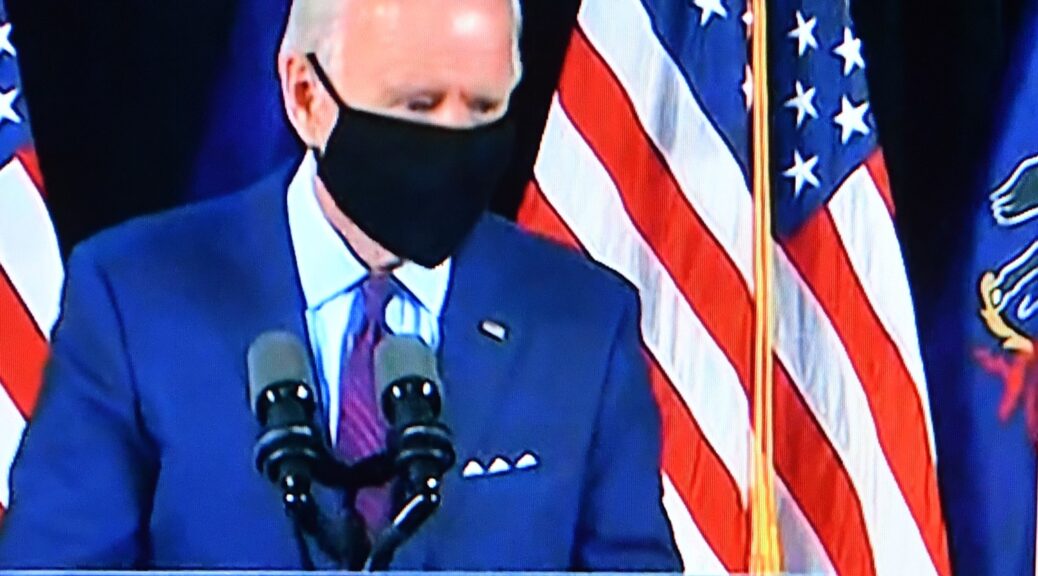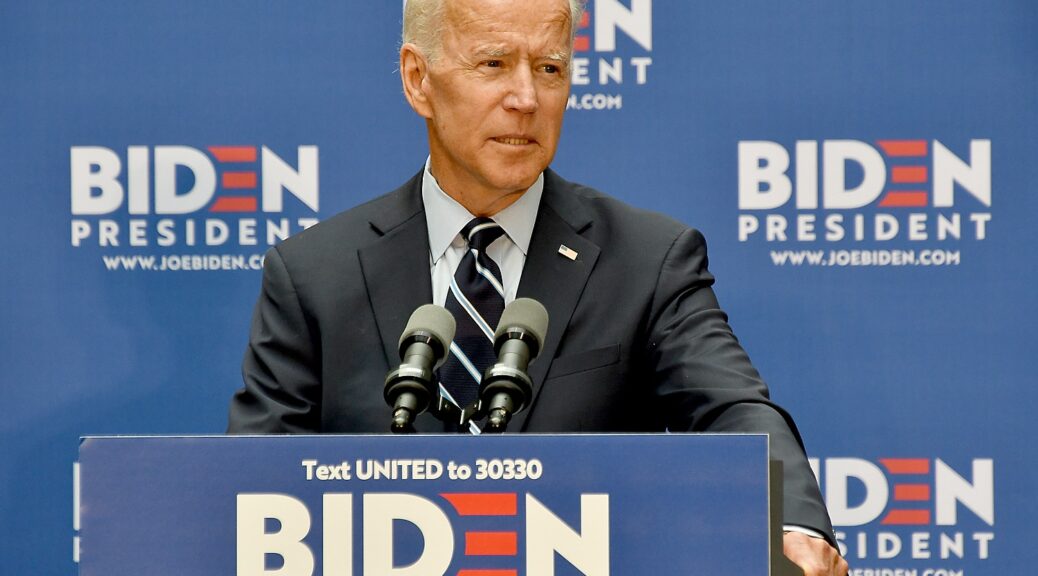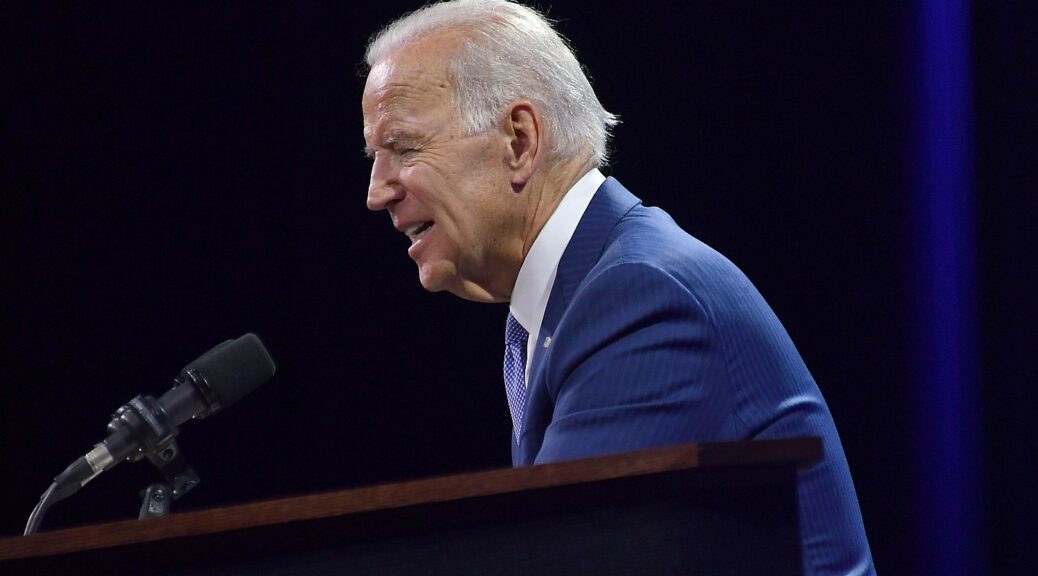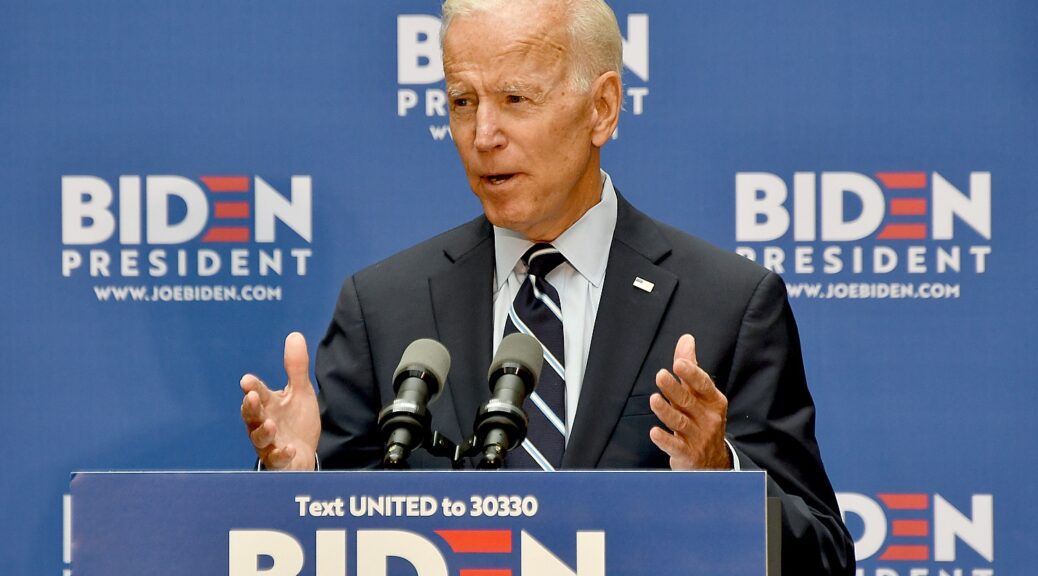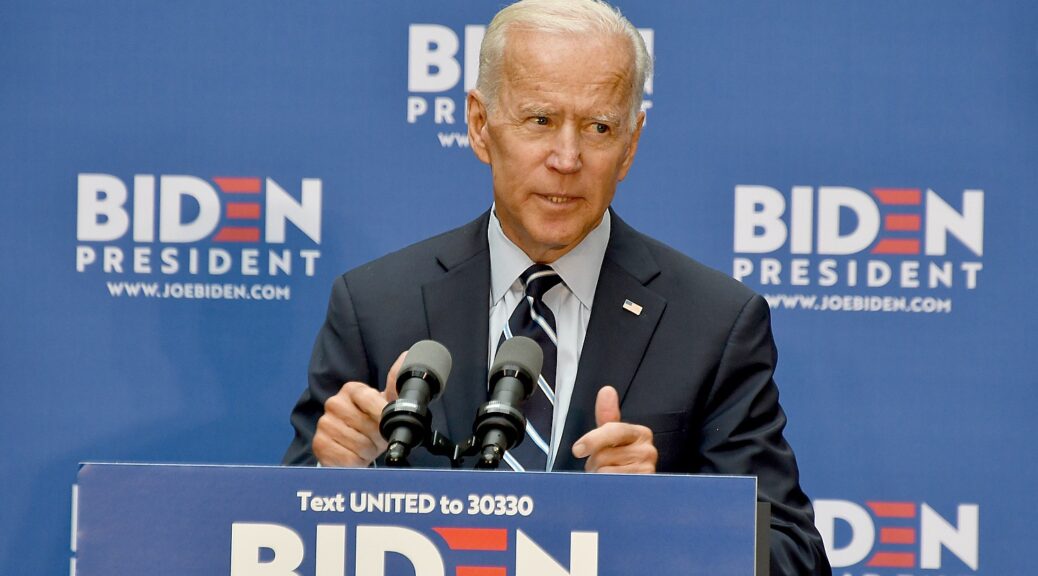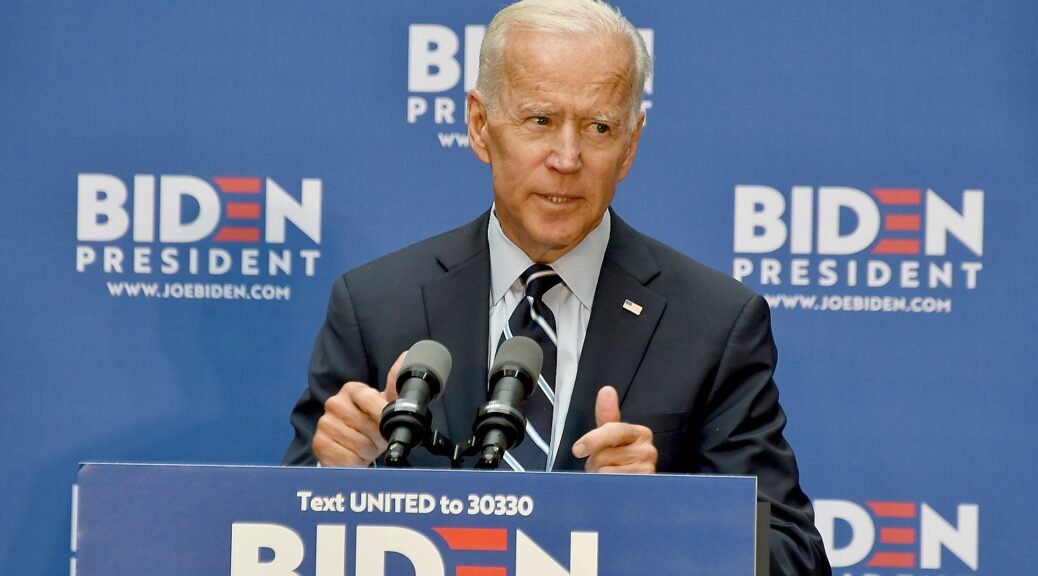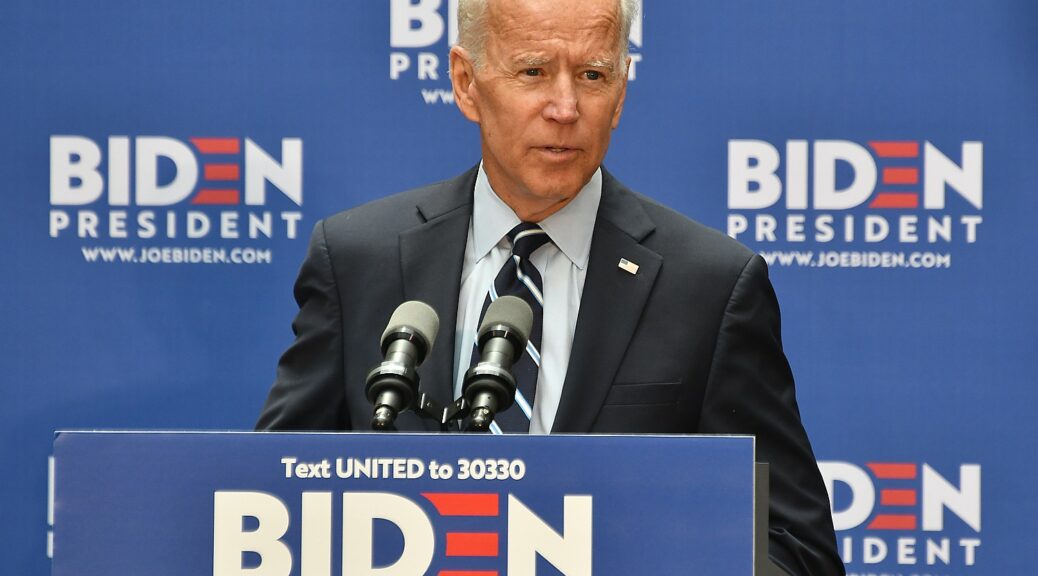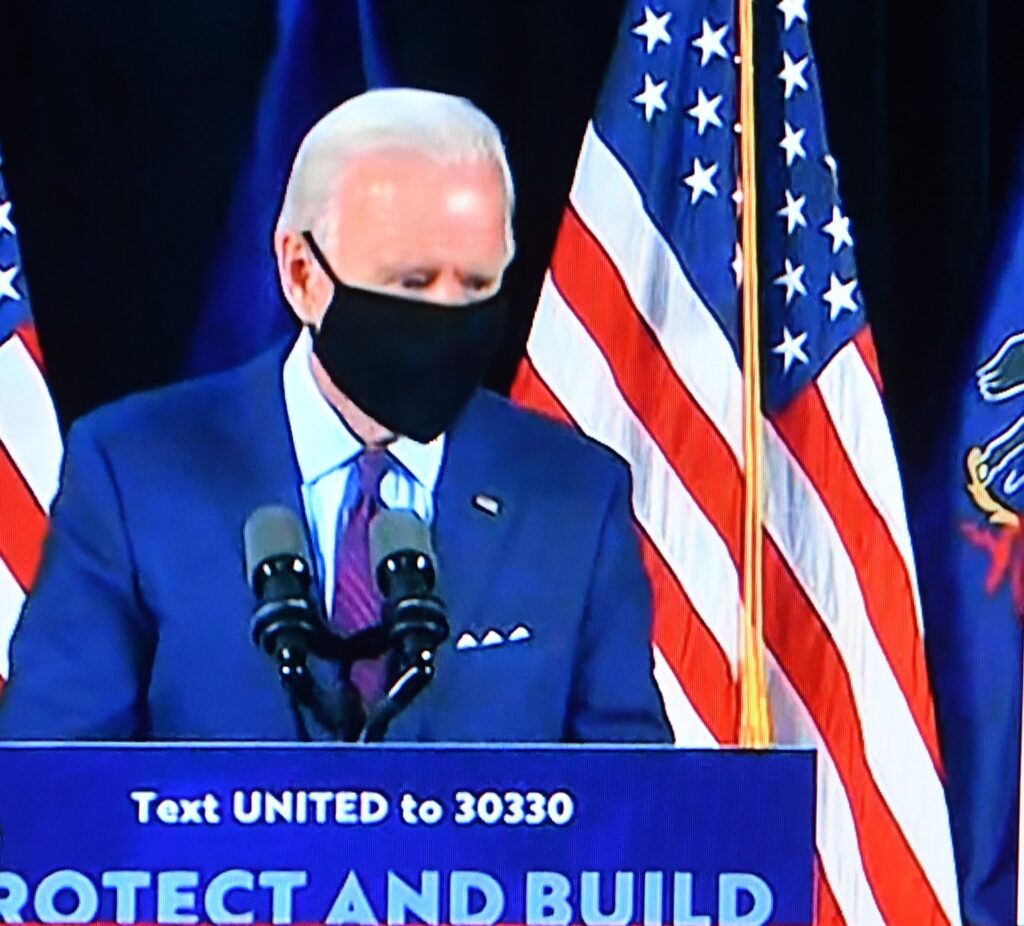
In face of criminal lack of leadership by Trump in the midst of the worst public health crisis in a century and the worst economic condition since the Great Depression, Vice President Joe Biden, the presumptive Democratic nominee for president, is showing what a real leader would do. With the nation facing yet another dire shortage of PPE, Biden is offering his plan to rebuild US supply chains so that the nation never faces future shortages of critical equipment. This is from the Biden campaign—Karen Rubin/news-photos-features.com
FACT SHEET:
The Biden Plan to Rebuild U.S. Supply Chains and Ensure the U.S. Does Not Face Future Shortages of Critical Equipment
Joe Biden will work to ensure that the U.S. does not face shortages of the critical products America needs in times of crisis and to protect our national security. To combat the COVID-19 pandemic, Biden will immediately marshal all of the tools of the Federal government to secure sufficient supplies, treatments, and, as soon as possible, a vaccine to combat the pandemic. At the same time, he will implement fundamental reforms that shift production of a range of critical products back to U.S. soil, creating new jobs and protecting U.S. supply chains against national security threats.
While medical supplies and equipment are our most pressing and urgent needs, U.S. supply chain risks are not limited to these items. The U.S. needs to close supply chain vulnerabilities across a range of critical products on which the U.S. is dangerously dependent on foreign suppliers. America needs a stronger, more resilient domestic supply chain in a number of areas, including energy and grid resilience technologies, semiconductors, key electronics and related technologies, telecommunications infrastructure, and key raw materials.
The critical supplies America needs today may be different from the critical supplies needed in the future as technologies and markets evolve. That’s why Biden will institute an ongoing, comprehensive government-wide process to monitor supply chain vulnerabilities, designate vitals products where the U.S. needs to address supply chain vulnerabilities, and immediately close identified gaps. He will work collaboratively with the private sector to improve productivity and avoid unnecessary costs and bureaucracy.
The goal here is not pure self-sufficiency, but broad-based resilience. Biden’s plan will strive to ensure that America doesn’t face a shortage of vital goods — to deal with any future crisis or fundamental national need — through a combination of increased domestic production, strategic stockpiles sized to meet our needs, cracking down on anti-competitive practices that threaten supply chains, implementing smart plans to surge capacity in a time of crisis, and working closely with allies.
He will initiate this process with a 100-day review immediately upon taking office to identify critical national security risks across America’s international supply chains and will ask Congress to enact a mandatory quadrennial Critical Supply Chain Review to institute this process permanently.
As President, Joe Biden will:
Use the full power of the federal government to rebuild U.S. domestic manufacturing capacity of our supply chains for critical products.
Implement a comprehensive approach to ensure the U.S. has the critical supplies it needs for future crises and its national security
Work with allies to protect their supply chains and to open new markets to U.S. exports.
Use the full power of the Federal Government to rebuild domestic manufacturing capacity in our critical supply chains
Joe Biden will soon release a comprehensive strategy to create American jobs through modern American manufacturing. Today, he is announcing a set of targeted proposals to ensure the United States has the domestic manufacturing capacity necessary for critical supply chains. He will:
Use the Defense Production Act (DPA) to put Americans to work manufacturing critical products, including those immediately needed to respond to the COVID-19 pandemic. The DPA grants the President broad authority to mobilize the domestic industrial base toward emergency preparedness. The Trump administration is still dragging its feet on using the DPA to produce urgently-needed supplies to combat the COVID-19 pandemic, and has fallen far short of the domestic mobilization we need. For example, months into the crisis we still face a shortage of N95 masks. By contrast, Biden will use the DPA to direct U.S. companies to ramp up production of critical products that will be needed over the near-term. He will also use the 100-day review process to determine the best way forward over the mid- and long-term.
As President, Biden will use the DPA to its fullest extent to rebuild domestic manufacturing capacity in critical supply chains, using the lessons learned from the COVID-19 pandemic and applying them to our national needs. Biden understands that improving the resilience of U.S. supply chains requires working closely with the American private sector. As part of this effort, he will pursue competitive public-private partnerships to encourage and invest in innovative manufacturing technology and capacity.
Use federal purchasing power to bolster domestic manufacturing capacity for designated critical products. In addition to using DPA authority to ensure the U.S. prioritizes emergency preparedness, Biden will direct the federal government’s purchasing power to support manufacturing capacity for products designated as critical to U.S. national security. The government has authority in the Procurement Act of 1949, which permits the president to establish “policies and directives” for federal procurement, and Joe Biden will use that authority to build up capabilities throughout the supply chain. Biden’s use of federal purchasing power to build U.S. manufacturing capacity for critical products will focus not only on where the final product sold to the U.S. government comes from, but at the supply chains of companies that receive large federal contracts. Biden will outline a bold and specific procurement agenda in the coming days.
Build long-term supply chain resilience for pharmaceuticals: The COVID-19 pandemic has highlighted the particular vulnerabilities the U.S. faces with its pharmaceutical and medical device supply chains. According to the FDA, more than 70% of active pharmaceutical ingredient (API) facilities that supply the U.S. market are located abroad, and U.S. pharmaceutical imports have been rising for years. A substantial amount of this production is happening in places with labor costs comparable to the U.S.
Meanwhile, medicines remain far more expensive in the U.S. than in many countries in part because drug makers fail to pass any saving on to consumers. Given the world-class productivity of American manufacturers combined with a robust set of measures to make medicines more affordable for families, such as allowing Medicare to negotiate lower drug costs, we should be able to increase American production and ensure the security of medical supply chains without raising prices for consumers. Moreover, Biden has offered a comprehensive healthcare plan that will reduce medical costs for millions of Americans while guaranteeing expanded healthcare coverage.
As President, Joe Biden will:
Use BARDA to spur medical production: Biden will use the Biomedical Advanced Research and Development Authority (BARDA), which has received billions of dollars to combat COVID-19, to ensure adequate production of vaccines and other medical countermeasures to address COVID-19. Biden will ensure that BARDA engages in science-based purchasing decisions and that it puts Americans to work rebuilding U.S. medical production capabilities by providing incentives for the production of vaccines and other medicines in the U.S. Biden is also prepared to use other federal authorities, including direct compulsory licensing of vaccines where companies are slow in producing them or are charging excessive prices, to rapidly scale up vaccine production as needed.
Leverage Federal health care purchases: Biden will work to ensure that the U.S. leverages the fact that it is the largest purchasers of health care–between Medicare, Medicaid, the Department of Veterans Affairs, and other health programs as well as Federal procurement more generally–to encourage pharmaceutical companies to make key drugs, drug inputs, and medical devices in the United States while ensuring fair and transparent pricing. He will require the FDA Commissioner, the Centers for Disease Control, and the Department of Defense to identify critical drugs and medical products and create a market for American manufacturing by directing federal agencies to purchase versions of these drugs that are made in the U.S. and that use U.S.-made source ingredients. Biden will take steps to ensure that these measures do not increase the out-of-pocket drug costs for Americans.
Ensure the U.S. tax code encourages on-shoring of pharmaceutical supply chains: Pharmaceutical offshoring has been heavily driven by tax code provisions that have encouraged companies to locate pharmaceutical production in low-tax countries even where those countries have labor and other costs comparable to the U.S. Biden will eliminate Trump Administration tax incentives for offshoring and pursue other tax code changes that will encourage pharmaceutical production in the U.S.
Implement a comprehensive approach to ensuring that the U.S. has the critical supplies it needs
Much as the Department of Defense periodically studies defense supply chains and pursues systematic policies to close vulnerabilities, Biden will launch a comprehensive review of U.S supply chain vulnerabilities and implement a national strategy to close them. He will sign a comprehensive Executive Order to inventory U.S. supply chain vulnerabilities, directing relevant agencies to identify the specific critical products where the U.S. faces national security supply chain vulnerabilities and to address these weaknesses immediately. And he will work with the Congress to pass a law making this process permanent as part of a quadrennial Critical Supply Chain Review that will include updating the list of critical products that will be the focus of supply chain security planning.
Biden will ensure that the U.S. has adequate stockpiles of critical supplies in place for future crises, manufactured by American workers in the United States to the greatest extent possible. Our country should not face shortages in the future like those we are facing today under Trump.
Increase federal stockpiles: Biden will increase U.S. strategic stockpiles of medical supplies and other critical goods while using federal procurement authorities to ensure that stockpiled products are made in the U.S. to the greatest extent possible, thereby creating an incentive for on-shoring production of those goods.
Require companies to develop plans to address potential supply chain disruptions for critical products. Biden will work with Congress and direct regulatory agencies to require companies that manufacture, distribute, and use designated critical products in the U.S. to regularly identify potential supply chain vulnerabilities and develop plans for addressing them. Where necessary to protect critical infrastructure and supplies, he will impose targeted restrictions on imports from nations such as China and Russia that pose national security threats.
Promote surge manufacturing capacity. Biden will work with Congress and the private sector to develop standing plans to enable surge manufacturing capacity in the United States for key critical products. This will include:
Compensating companies where necessary for maintaining excess production capacity and inventory for designated critical products;
Encouraging companies to create databases of product designs for supplies that might be needed during a national crisis;
Using legal authorities during crises to ensure product designs and patents can be licensed and utilized quickly if needed to ramp up production in the U.S.; and
Pursuing public-private partnerships to improve manufacturing capacity. The National Network for Manufacturing Innovation initiative (NNMI) put in place by the Obama-Biden administration, and now receiving bipartisan support, is one example of such a program.
Invest in a new Critical Supply Chains Workforce: Joe Biden knows that to make critical supplies in the U.S. over the long term, we need a skilled workforce that can produce them. Biden will create a new Critical Supply Chains Workforce Development Fund that will invest in the workforce skills needed to help bring back manufacturing of key supply chain products and components. He will partner with state, local, and tribal governments to maintain adequate base production capacity in every region of the country and to put in place executive functions that have clear chains of command. This will ensure that that in future times of crisis the U.S. will be able to quickly ramp up production, rather than the chaotic, belated, and largely failed efforts we have seen under the Trump Administration to secure badly needed medical gear, including personal protective equipment.
Create new incentives to spur domestic production of critical products in the United States: Biden will work with Congress, states, tribes, and localities to provide targeted investments and incentives for companies to manufacture designated critical products in the U.S. This will include new targeted financial incentives, including tax credits, investments, matching funds for state and local incentives, R&D support, and other incentives to encourage the production of designated critical materials such as semiconductors in the United States.
Work with allies to protect their supply chains and to open new markets to U.S. exports
Instead of insulting our allies and undermining American global leadership, Biden will engage with our closest partners so that together we can build stronger, more resilient supply chains and economies in the face of 21st century risks. Just like the United States itself, no U.S. ally should be dependent on critical supplies from countries like China and Russia. That means developing new approaches on supply chain security — both individually and collectively — and updating trade rules to ensure we have strong understandings with our allies on how to best ensure supply chain security for all of us. As president, Joe Biden will:
Take action against our competitors when they refuse to honor trade agreements: U.S. manufacturers rely on raw materials like cobalt, copper, graphite, and tin to make a range of products, but foreign governments sometimes take illegal steps to keep these materials away from U.S. companies. China, for example, has a history of levying a tax on raw material shipments to U.S. producers, while allowing its companies to receive the material at cost—putting U.S. companies at a steep disadvantage. Biden will hold our competitors accountable when it comes to trading in raw materials, giving our manufacturers the right to purchase critical materials at the same price as foreign companies.
Deploy trade policy tools and regulations to create new markets for U.S.-made critical products. Under Biden, the United States will not just have greater supply chain security itself; our new production capacity will also result in greater U.S. export capacity, creating new opportunities for U.S. workers and businesses while also helping more parts of the world reduce their own over-reliance on countries like China. This is a win-win for the U.S. and the world.

